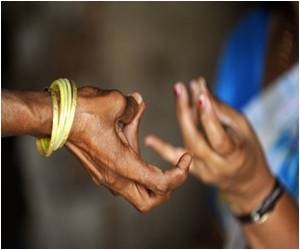Though the fight against leprosy has made great progress in the last two decades, complacency may now threaten the last push towards freeing the world of the disease, said WHO.

The three-day summit, being organised by WHO and the Nippon Foundation, brought health ministers from eight countries and global experts to discuss the current leprosy situation and strategies for further reducing the disease burden and realising a leprosy-free world.
Globally, every two minutes, a new case of leprosy is detected and seven out of every 10 cases is a child.
Misinformation about leprosy is common and the disease continues to be shrouded in stigma with communities shunning patients even after they are cured.
"Our challenge is to sustain the quality of leprosy services and to ensure that all persons affected by leprosy, wherever they live, have an equal opportunity to be diagnosed early and treated by competent health workers," Samlee Plianbangchang, regional director, WHO South-East Asia, said.
"While we have covered a lot of ground in reducing the disease burden in all endemic countries, there is no room for complacency. The final battle against leprosy is yet to be won," he said.
"The target populations are living in difficult-to-reach areas such as urban slums, border areas and ethnic minority areas. Moreover, available resources in each country have declined," Sasakawa said.
The number of highly endemic countries has gone down from 122 in 1985 to less than 20. However, despite significant progress, leprosy continues to be a health concern in these endemic pockets.
In 2012, 232,850 new cases of leprosy were reported, with 94 percent of these cases restricted to 15 endemic countries, many of them in South East Asia and Africa.
Source-IANS
 MEDINDIA
MEDINDIA




 Email
Email




